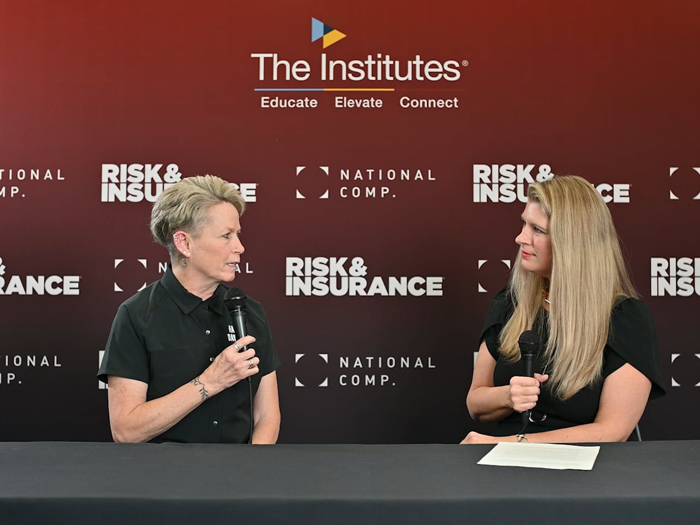Addressing Long-Haul COVID Complaints in the Workplace
As COVID-19 vaccine distribution continues nationwide and overall infection rates and deaths no longer top new daily highs, more employers are seeing a light at the end of the tunnel.
Businesses are asking employees to return to the workplace and also hiring new ones. And it’s no coincidence that these workforce expansions are occurring as more states ease their pandemic restrictions.
Employees who were furloughed or laid off saw the opportunity to return to work or land a new job cannot happen soon enough. Employers that suffered financial losses due to the pandemic are eager to strengthen their workforce and resume full operations.
How employers maintain workplace health and safety will be paramount during this transition back to business at full capacity. But while employers are envisioning life in a post-COVID era, there is another potential occupational health concern that cannot be overlooked.
Post-Acute Sequelae of SARS-CoV-2 (PASC)
As employees return to work, many are trying to erase the memories of contracting COVID-19.
Tens of thousands of individuals who fought and survived the battle against the virus are still dealing with its lingering effects and symptoms.
Despite undergoing testing that reveals no viral load, these individuals persistently suffer from symptoms related to the infection. In the medical field, this condition is called Post-Acute Sequelae of SARS-CoV-2 or PASC, also known as long COVID or long-haul COVID.
PASC Symptoms
PASC can cause a wide range of chronic symptoms. Some resemble influenza and other respiratory illnesses.
In addition to respiratory issues, these patients may present signs of fatigue, palpitations, headaches, dizziness, muscle pain, anxiety and depression.
It is unknown why some post COVID-19 patients suffer these lingering symptoms while others do not. It is also unknown why some symptoms can be debilitating — persisting for months after an individual has “recovered” from contracting the virus.
International surveys cited by the Centers for Disease Control and Prevention in a January 2021 Clinical Outreach and Communication Activity webinar are helping medical professionals understand more about PASC.
Some specific findings include the following:
- 35 to 54% of people with mild acute COVID-19 had persistent long-COVID symptoms after two to four months
- 50 to 76% of people reported new symptoms they had not experienced during the acute illness, and some had reappearance of symptoms that had resolved
- 9% described their long-term symptoms as severe
These findings remain under the watchful observation and analysis of medical experts globally.
PASC in the Workplace
Over the past year, employers of all industries have seen workers’ compensation claims involving COVID-19. A prime example would be our first responders — notably, firefighters. Throughout the pandemic, firefighters have been exposed to higher acuity patients, placing them at greater risk of exposure than most essential workers.
Just like any workplace injury or illness, an employee should report the condition to his/her employer.
In the case of a PASC complaint with a known workers’ compensation claim for COVID-19, once the syndrome is recognized in the workplace, an employer should ideally connect with its workers’ compensation insurance carrier to discuss the affected employee’s concerns.
Their adjuster should reach out to the employee and perform the proper due diligence to help determine whether the employee’s symptoms are related to the initial workers’ compensation claim for COVID-19. The adjuster might require that the individual submit to a physical examination and related testing to assist in the determination.
If an employee’s PASC symptoms are found to be related to his/her workers’ compensation claim, the employee should be referred for additional care.
Depending on the individual’s symptoms, a referral to internal medicine, cardiology, pulmonary or occupational medicine may be appropriate. Strong consideration should be given to primary care or occupational medicine to serve as a gatekeeper to manage the individual’s ongoing care.
How PASC Impacts Workers’ Compensation
As an employer, it’s important to understand that your workers’ compensation payor ultimately determines whether these employees are eligible for ongoing workers’ compensation benefits.
Developing a timeline, exploring contact tracing and considering other state-specific workers’ compensation regulations will enable your payor to determine compensability.
Coordination of care and referrals to clinicians familiar with these problems will be essential to ensure optimal outcomes.
Meeting the Occupational Health Challenges
Our knowledge of COVID-19 has broadened significantly over the past year, but there’s still so much we do not understand.
The growing number of PASC cases reveals how we cannot predict how individuals will react to the virus even after it is no longer detectable. For this reason, employers should approach each potential case of PASC in the workplace with an open mind. If an employee with suspected symptoms has a past claim involving COVID-19, your current workplace illness protocol should allow the proper steps to be taken to determine compensability as with all claims.
In the meantime, and as new variants become more widespread, employers should continue to stay the course by executing their existing COVID-19 workplace prevention measures and by encouraging vaccination. This will help mitigate the spread of the virus as companies continue to welcome back and hire employees. &










